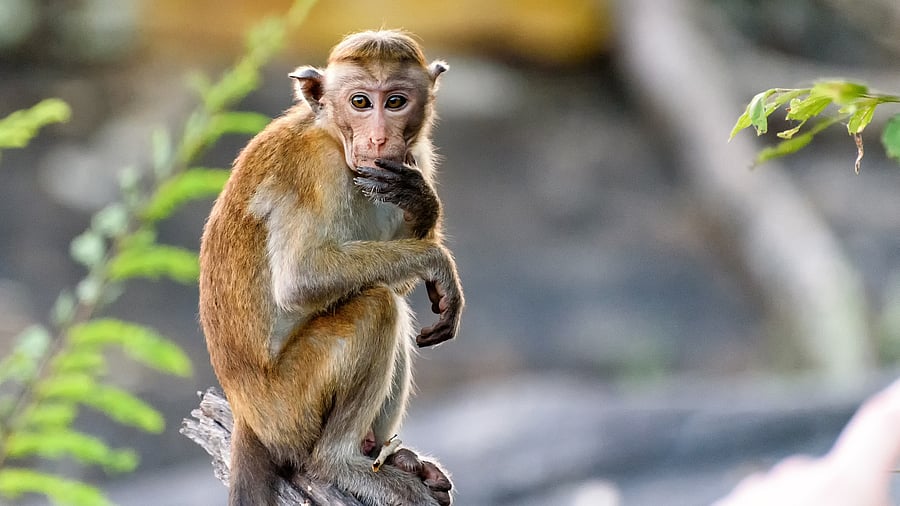
A macaque monkey. Image for representational purposes.
Credit: iStock Photo
In another significant stride in the transplantation of organs from one species to another, China's first gene-edited pig kidney survived for over half a year in a monkey.
According to a report by South China Morning Post, the new development comes after the first-ever transplant of a gene-edited pig liver into a human cancer patient earlier this year.
The new development is significant, insofar as the lack of successful long-term animal testing of gene-edited pig organs have thus far limited human trials.
In that light, Chen Gang, the scientist who led the team behind the latest experiment, said that the monkey's survival could drive forward further clinical research in the field, especially pertaining to human trials.
For this experiment, the team transplanted a single gene-edited pig kidney into a macaque monkey, which had its kidneys removed on May 10 this year.
After the transplant, the monkey survived for 184, which met the benchmark to qualify as 'long-term survival'.
Of these 184 days, the transplanted kidney functioned normally for five months, following which its condition deteriorated and researchers confirmed that the monkey's body was rejecting the kidney.
Now, the team is focussing on improving their ability to inhibit the production of antbodies that can cause rejection of organs after transplantation. If successful, this could prove to be another breakthrough,
The world over, there are only twenty cases of long-term survival of monkeys following the transplant of gene-edited pig kidneys, SCMP reported citing Science and Technology Daily.
Using gene-edited organs have become a focus of late, given that patients around the world have been dying due to organ shortages.
That being said, organs of any animal cannot be used: pigs are preferred as their organs are of a size similar to those of humans, and have similar metabolism mechanisms as well.
However, pig organs cannot be directly transplanted as there is a chance of rejection by human bodies. Consequently, they are genetically edited to increase chances of success.
